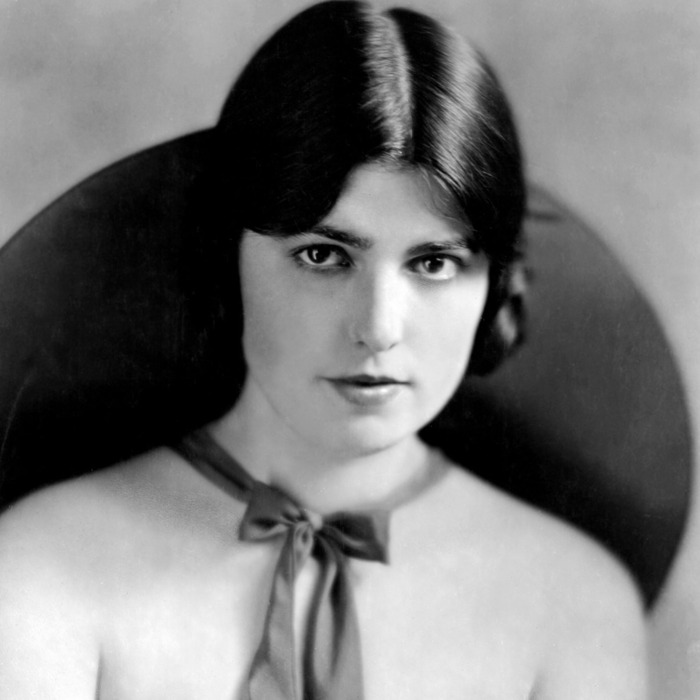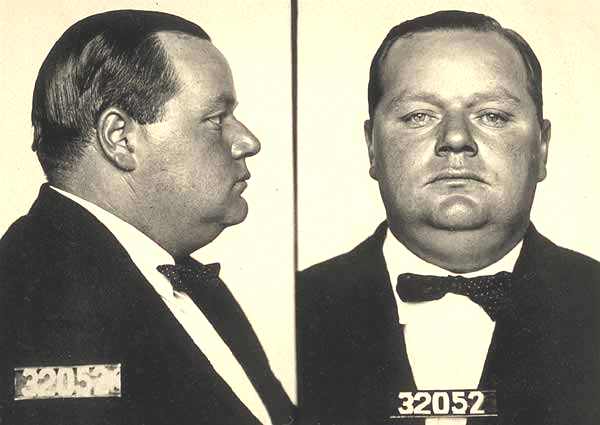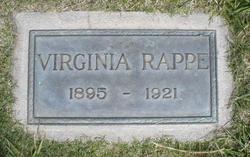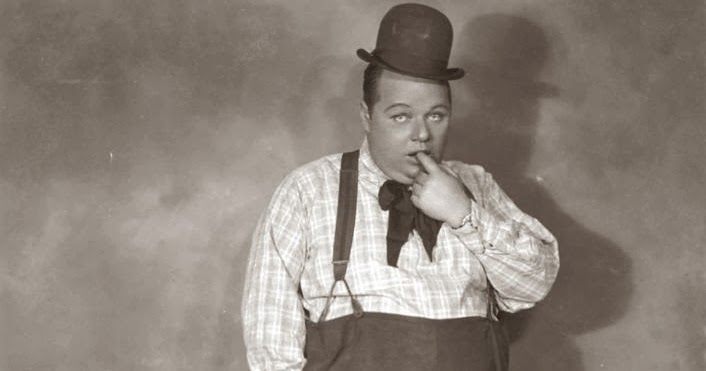Nine years ago, HBO announced that “Modern Family” star Eric (“Cam”) Stonestreet had been signed to play Hollywood’s most tragic funnyman Fatty Arbuckle in a new a biopic. Since then—and possibly because of the rise of the #MeToo movement—the project has been deep in “development hell” since 2011 and might never see the light of day.
One might argue that the #MeToo movement is precisely why the picture, titled “The Day the Laughter Died,” should be made.
The casting of the portly, hilarious Stonestreet is brilliant, but he might never approach Arbuckle’s heavyweight impact on early Hollywood. In 1921, when a million bucks could buy a lot more than today, Arbuckle—who hated the nickname “Fatty” and was always billed by his given name, Roscoe—was the first to break movie-making’s million-dollar ceiling. He had discovered the great Buster Keaton, and developed the greater Charlie Chaplin. It wasn’t long after he signed his groundbreaking seven-figure contract with Paramount that a friend threw Arbuckle a wild party in Room 1219 and an adjoining suite at San Francisco’s St. Francis Hotel.
Among the guests that Labor Day weekend was a starlet named Virginia Rappe, a well-known Hollywood party girl who was known to be promiscuous. When Arbuckle sees her, he falls head over heels in lust.

It was later reported that Arbuckle and Rappe slipped into Room 1219, where after some time had passed, screams were heard. When guests rushed into the room, they found Rappe writhing in agony on the bed. What happened? This was where the stories diverged.
Arbuckle claimed he’d merely gone into the room to use the bathroom when he found Rappe slumped on the floor, drunk. He said he carried her to the bed but she fell off.
Rappe’s girlfriend—a known madam and blackmailer—claims Rappe said, “He did this to me.” That friend accused Arbuckle of raping Rappe.
Meanwhile, Rappe got worse. After a few days, she was taken to the hospital, where she died of a ruptured bladder and peritonitis. However, doctors found no evidence of rape.

William Randolph Hearst’s sensational San Francisco papers went wild, followed quickly by the national press. Salacious stories about sex and booze (during Prohibition) swirled. Somebody suggested Arbuckle’s 260-pound weight had crushed Rappe when he had sex with her. Some said he’d used a champagne bottle as a sex toy and literally went too far. Others claimed Rappe had undergone a recent abortion and was already suffering from damage by the abortionist when she arrived at the party. And Fatty himself said sex never happened.
Charged with manslaughter, Arbuckle turned himself in. The first celebrity trial by media took flight. Three lurid trials ensued. Two juries hung, and the third acquitted Roscoe Arbuckle. The jury, which had deliberated only five minutes, issued a statement:
Acquittal is not enough for Roscoe Arbuckle. We feel that a great injustice has been done to him … there was not the slightest proof adduced to connect him in any way with the commission of a crime.

But the damage was done. His movies were pulled from theaters. Tinseltown banned Fatty Arbuckle from any more screen roles. Arbuckle changed his name to William Goodrich (shortened as a joke by his friend Chaplin to “Will B. Good”) and worked as a director for friends who believed he was innocent. In 1927, he reportedly discovered a young comedian named Bob Hope. Alas, in 1933, he suffered a heart attack in his hotel room and died. He was 46 and ruined. He was known for his never-proven crime, not his brilliant talent.
Fatty became a punchline rather than an icon.
That was nearly 100 years before #MeToo. These days, Fatty is generally seen as a sympathic figure who was wrongly accused for media and political reasons. But this century (so far) simply isn’t a time for deliberation. It might even be argued, after the Kavanaugh controversy and other cases of “guilty until proven innocent” in cases of alleged sexual misbehavior by big names, that Fatty would not fare much better in our contemporary atmosphere.
And that’s exactly why his story should be told.
Bestselling crime author Ron Franscell wrote about the Arbuckle case and key locations in his crime history, The Crime Buff’s Guide to Outlaw Los Angeles.
